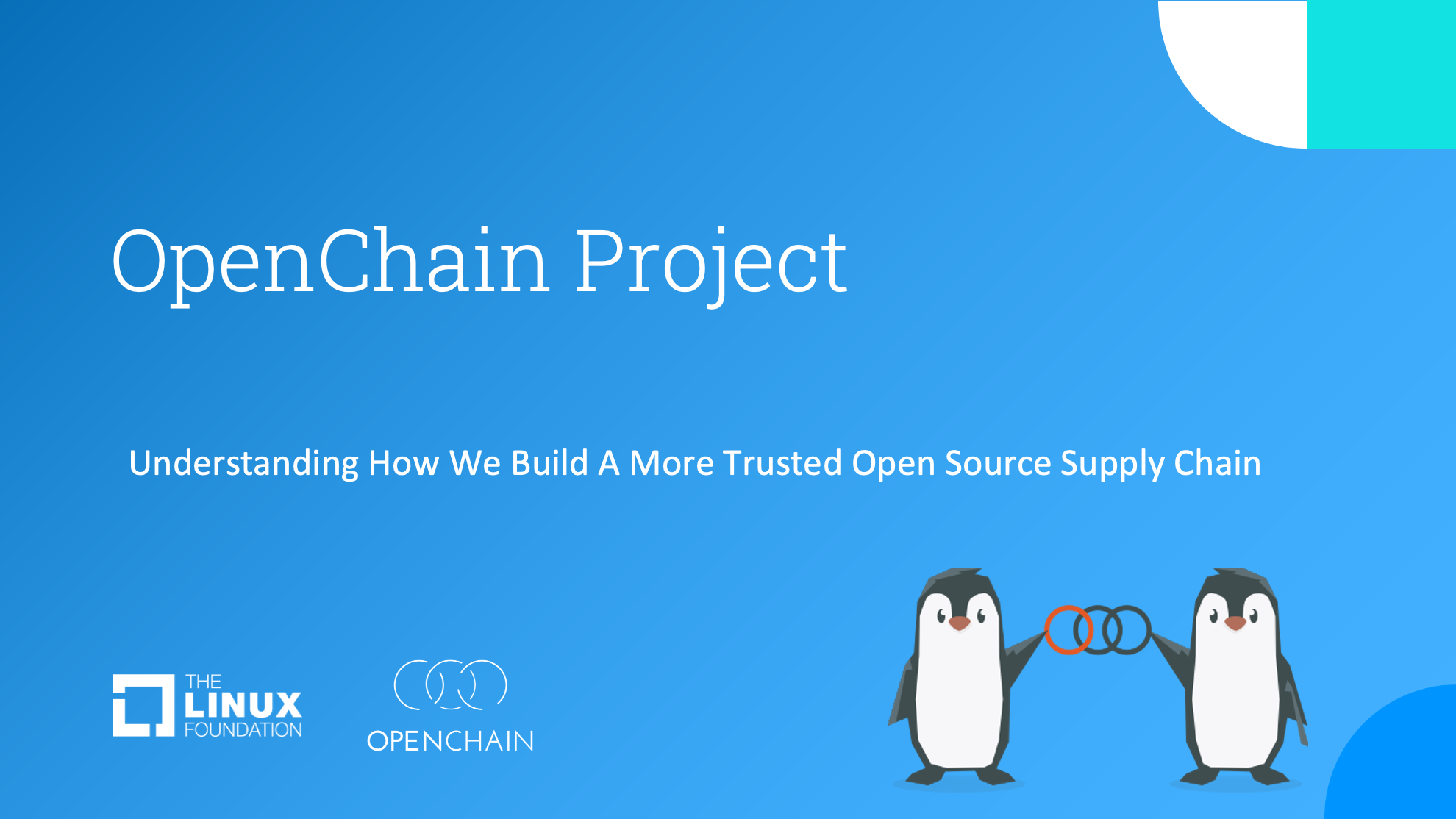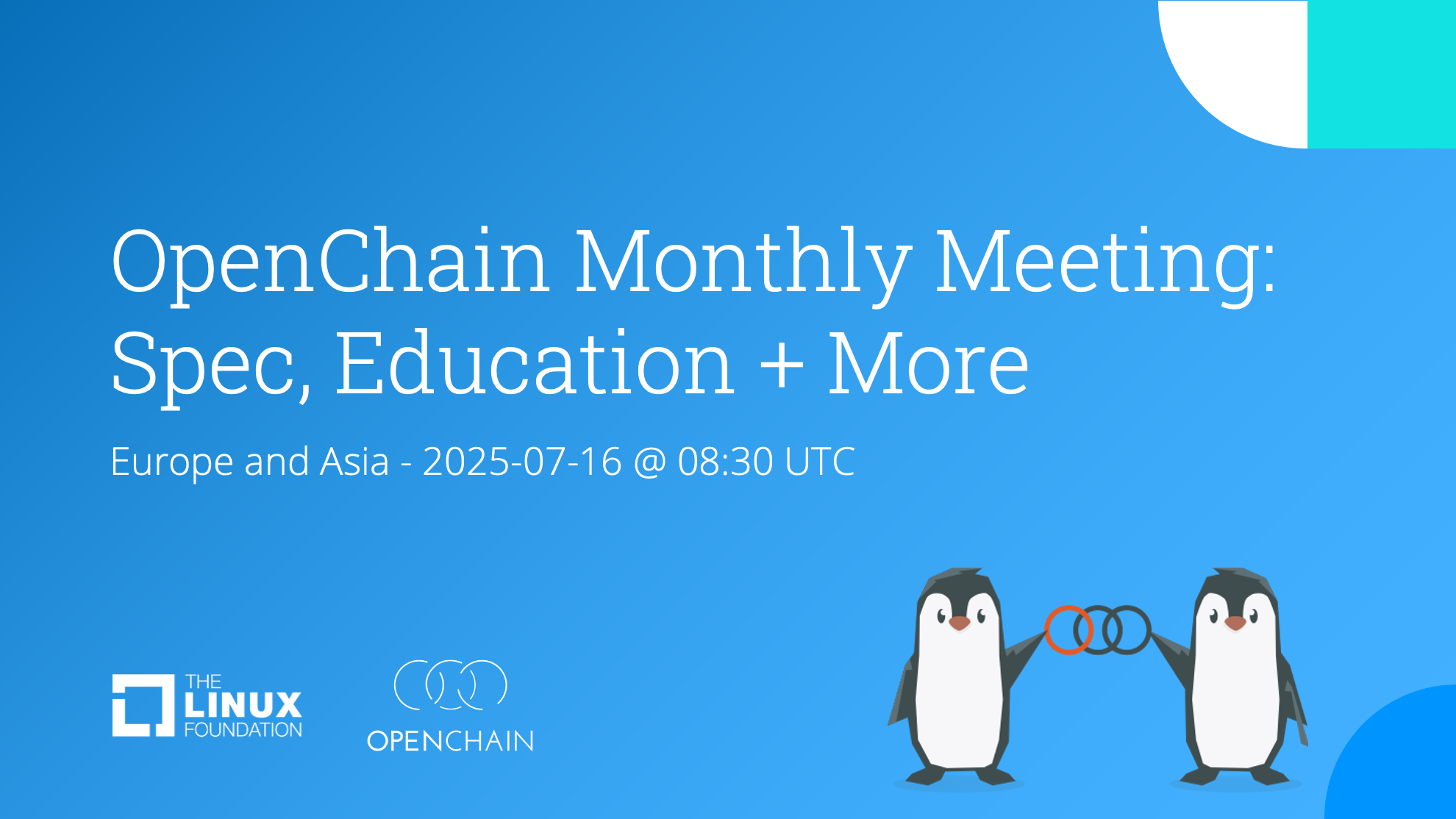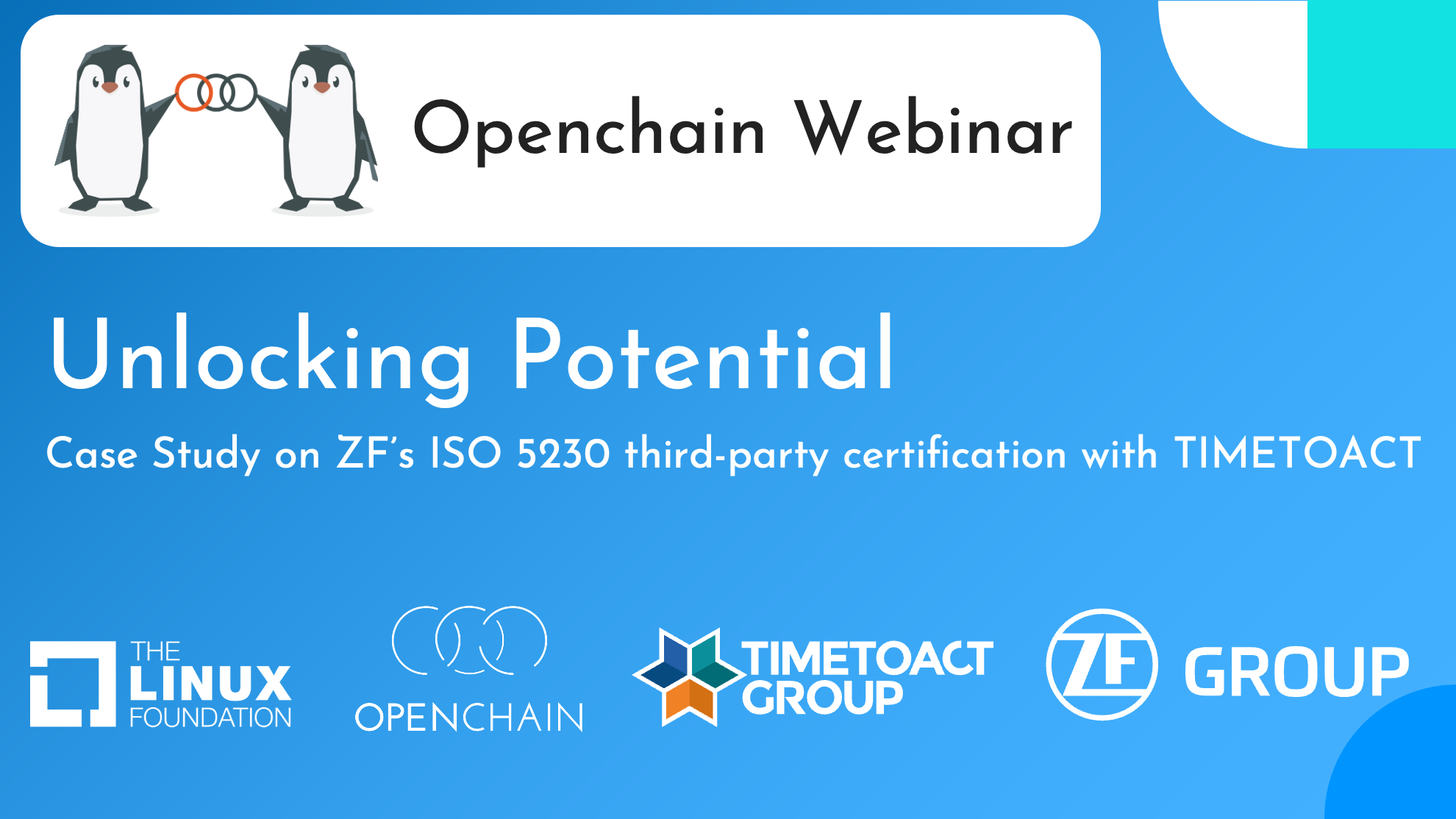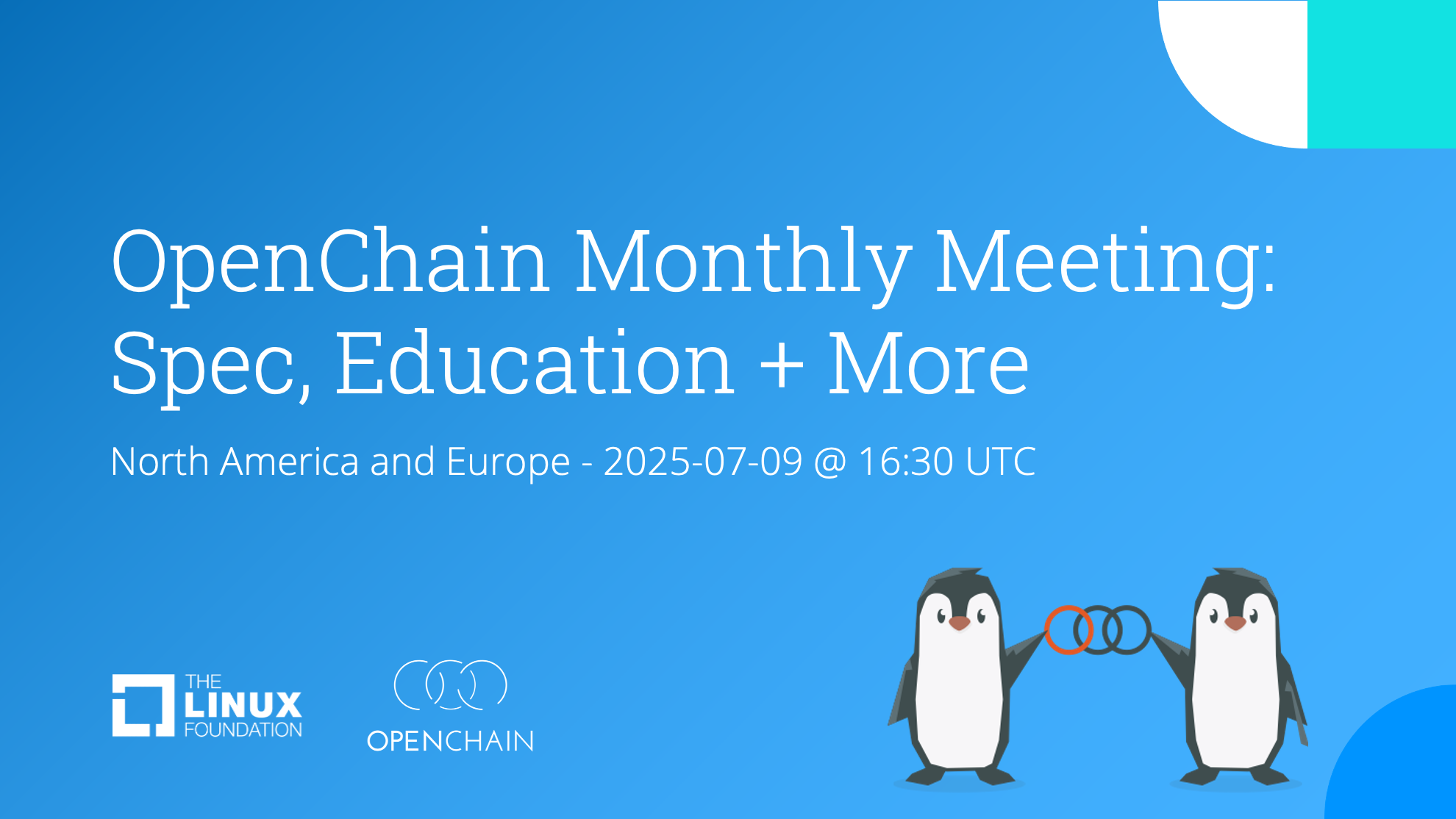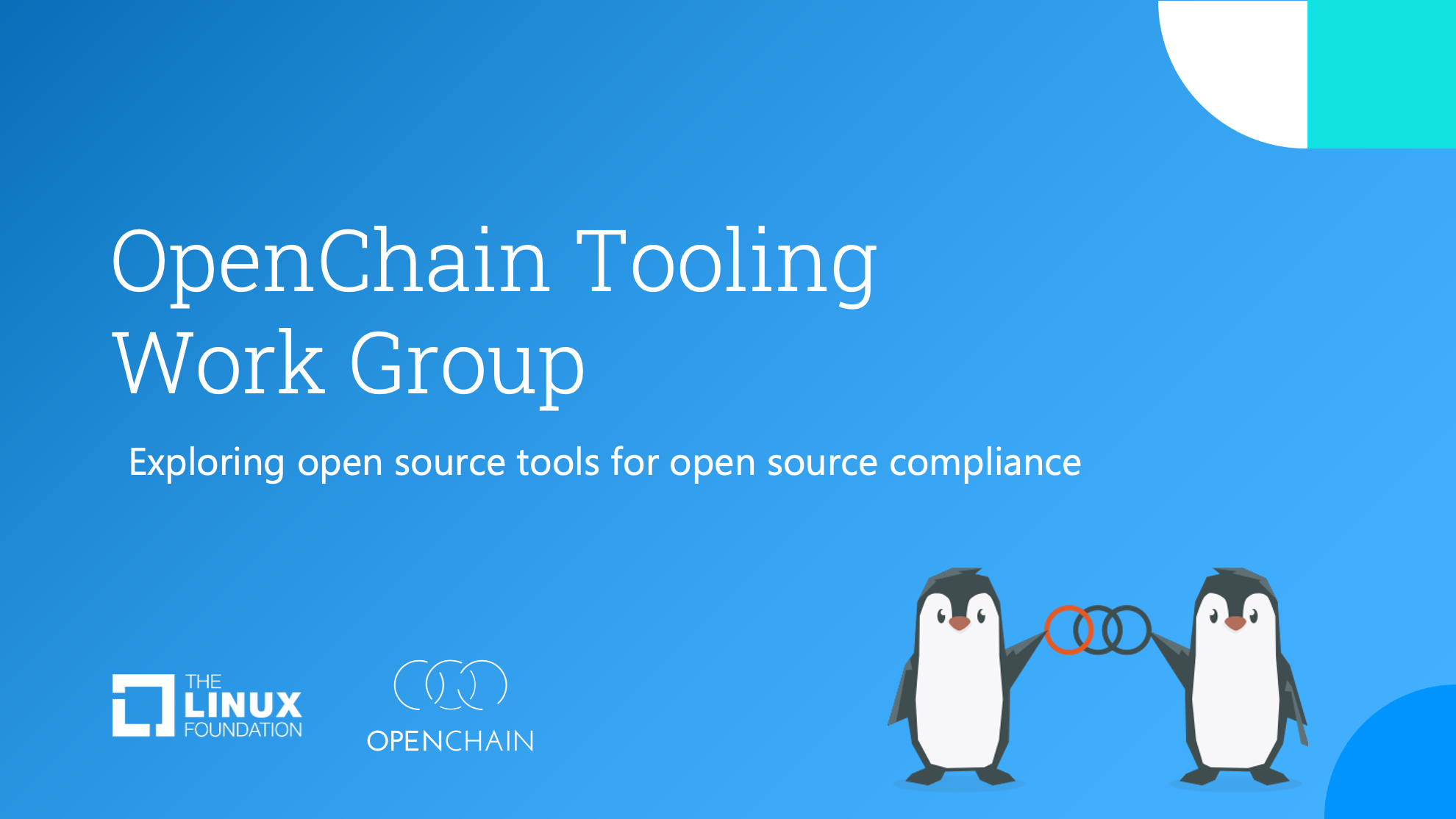
Video Overview Of The Work Group:
The OpenChain Tooling Work Group:
The OpenChain Tooling Work Group meets bi-weekly to discuss open source tooling for open source compliance. It covers license compliance, security compliance and regulatory compliance matters. Everyone is welcome to be part of the discussion, and you can always find the next scheduled meetings on the OpenChain Global Calendar: https://openchainproject.org/participate
Making It Easier To Participate:
The Tooling Work Group is one of the oldest activities, and it hosts its calls on a BigBlueButton instance on a Free Software Foundation Europe (FSFE) server. This is because Zoom, the default app used by Linux Foundation, is often not permitted in European companies, and the founding companies of the Tooling Work Group are based in Europe. The BigBlueButton instance records all the public OpenChain Tooling Work Group calls. You can log in (URL: https://conf.fsfe.org/b/compliance-tooling and meeting code: 199143 ) to view all those recordings.
However, we are always looking at ways to make it easier to be part of OpenChain Project activities. We are now also beginning to mirror the Tooling Work Group calls on the main OpenChain Project YouTube channel. We are starting with publishing the 2025 call series (so far). Over time, we plan to make all the legacy recordings available on that channel.
Please note: we have published some Tooling Work Group calls on the YouTube channel before. This is about moving from an ad-hoc to a more complete previous, and it an example of another small step towards sharing even more knowledge in even easier and more accessible ways.
You will find copies of the this year’s meetings below. We will also be posting backdated individual posts on the OpenChain newsfeed to aid with time-based searches and discovery.
OpenChain Tooling Work Group – 2025-02-20:
OpenChain Tooling Work Group – 2025-03-05:
OpenChain Tooling Work Group – 2025-03-20:
OpenChain Tooling Work Group – 2025-05-07:
OpenChain Tooling Work Group – 2025-05-21:
OpenChain Tooling Work Group – 2025-07-02:
Be Part of This:
Everyone is welcome to be part of the OpenChain Tooling Work Group. You can join the mailing list here: https://groups.io/g/oss-based-compliance-tooling
FAQ:
Q:
Why are some recordings missing?
A:
Not every call is recorded. Some are under Chatham House Rule or attendees express discomfort in being recorded. You will generally find recordings for calls with presentations / guest speakers.
